War does not heed academic deadlines
Just a few weeks ago, year-eleven pupil Kyrylo Pykyi was preparing to finish school in Ukraine, where schooling ends after eleven years. “I came to Germany in the middle of March,” he said. “Now our family can move into a flat of our own – our lives are just becoming a little more stable,” said Kyrylo, who was attending the information day together with his mother. He would like to study computer science. “I have already programmed and done different things in the IT field,” he explained.
Yevheniia Potabenko, also in year 11, is in a similar situation. She fled the Kyiv area with her mother and reads the news every day, deeply concerned for friends and acquaintances. She too is now hoping to study in Leipzig. “I would like to study law,” she said. She and her mother have already found a small flat. “At the moment it’s a bit difficult for me because there are so many forms to fill out in German,” explained Potabenko. “English would be a little easier for me.” Before she can study at university, she has to go through a few more stages: “First, I want to learn German and attend the Studienkolleg.”
Important bridges: Study preparation programmes
The Studienkolleg Sachsen, which is docked at Leipzig University, has the task of bringing high-school graduates from other countries up to the level of the German Abitur, explained Antje Schöne, adviser and coordinator of preparatory programmes at Leipzig University: “This is necessary for them to acquire the higher education entrance qualification.” She added that no one receives preferential treatment. At the Studienkolleg Sachsen, international students can spend a year preparing for their studies in order to build up both their subject-specific and language knowledge – with a focus on technical subjects or social sciences, for example, depending on the intended field of study. In order for international prospective students to be able to follow the content, it is important that they already have some knowledge of German (level B1 under the Common European Framework of Reference for Languages). This foundation can also be laid by taking courses at the University, such as at interDaF e.V. at Leipzig’s Herder Institute, but also state-supported integration courses or courses offered by other educational institutions. The demand for language courses is enormous, said Schöne.
University offers three new courses for people who are already students
A few days ago, three new courses at different language levels were launched at short notice together with the Studienkolleg Sachsen – in addition to those that were already scheduled anyway. “There are places for about 70 people in the courses,” explained Stefanie Kölling from the International Centre. She is responsible for master’s admissions and advising students, and part of the guidance team for refugees, which currently has its hands full. These additional courses are specially designed for refugees who have already studied in Ukraine and whom the University would like to enable to continue their studies in Leipzig in German as quickly as possible. The selection criteria include whether the desired course of study is offered here and which semester the refugee is in. There will be further courses in July and August. However, Kölling stressed that the courses are also still open to other refugees: “to Syrians, Afghans, people from Iraq and all those seeking protection.”
Prospective students who do not find the subject they are looking for at Leipzig University may be in good hands at the HTWK or the Hochschule Merseburg University of Applied Sciences, or vice versa.
Students from third countries also eligible
The language courses offered by Leipzig University are also open to students from Ukraine who were born in other countries and also had to flee from the war. Faidar Mohamed, for example, has already completed his medical degree in Lviv. In Leipzig, the aspiring gastroenterologist hopes to be able to obtain his licence to practice medicine and continue on his career path. Eden Philip Kenechukwu from Nigeria was in his second year of medical school when war broke out in Ukraine. But he, too, first needs to learn German.
“We know from previous years that it’s a bit of a setback for those affected that they still have to learn German first,” said Stefanie Kölling. “But when you’ve been to a lecture for the first time – perhaps as a so-called auditor – you realise just how necessary it is. Then it usually works out.”
Studentwerk Leipzig advises on all aspects of studying
At present, like the universities, the Studentenwerk Leipzig is also inundated with requests. “We can’t keep up with the requests for advice that we are receiving at our individual offices,” said Jana Kuppardt, head of the social counselling service and contact person for international students there. “That’s why it’s all the more important to bundle the information here in one place,” as was the case at the joint information day, now in its fifth year and organised by the Studentenwerk Leipzig in cooperation with HTWK and Leipzig University. “We, the Studentenwerk Leipzig, are responsible for everything related to studying,” Kuppardt said. It provides comprehensive advice on financial and social issues, among other things, and organises events. Kuppardt explained that special target groups include students with children or those expecting children, as well as students with impairments or a chronic illness. “The goal is for us to provide support there, too, so that studying everyone can study on a level playing field.”
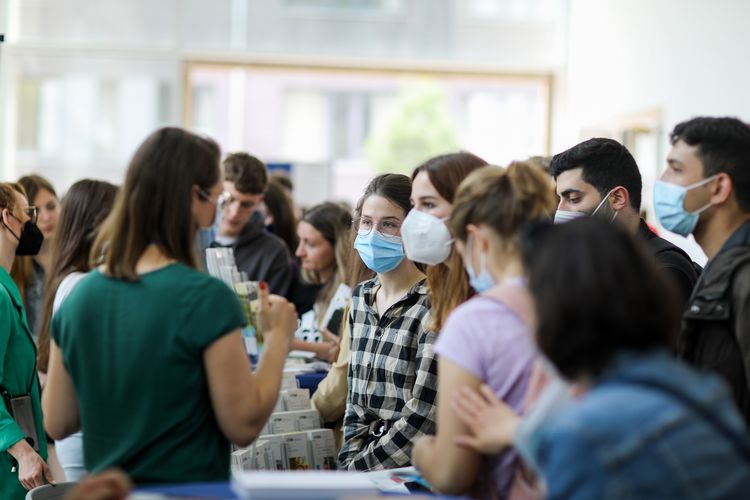
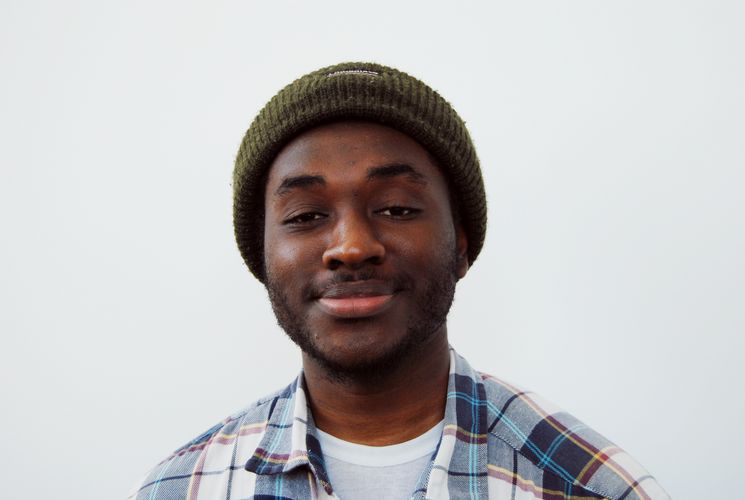
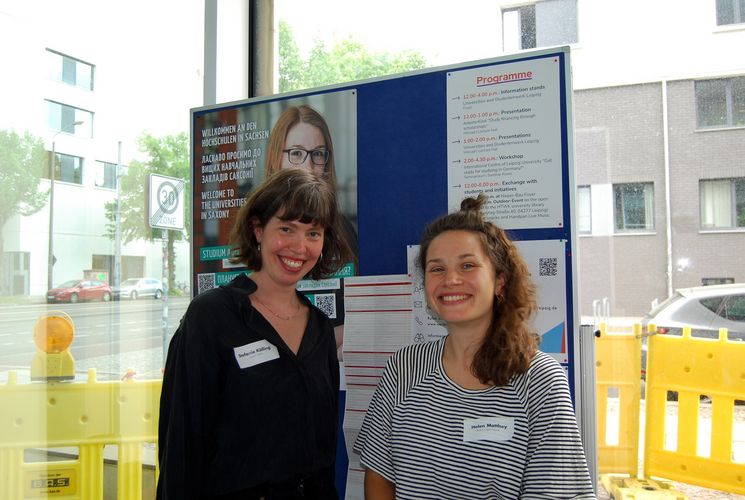
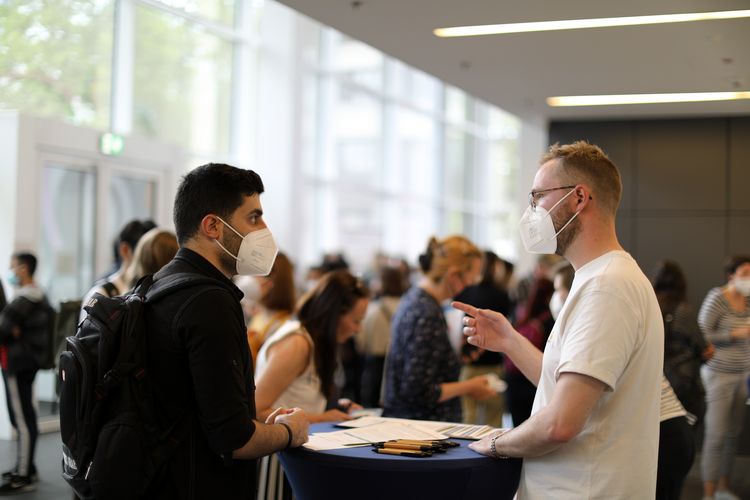
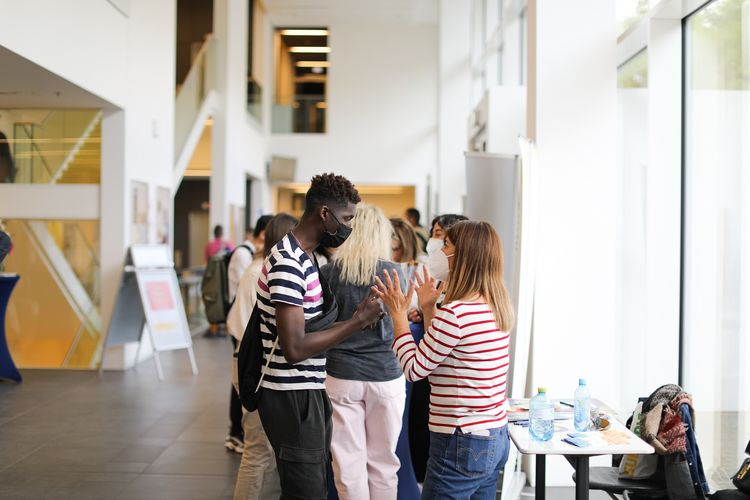
Comments
No comments found!